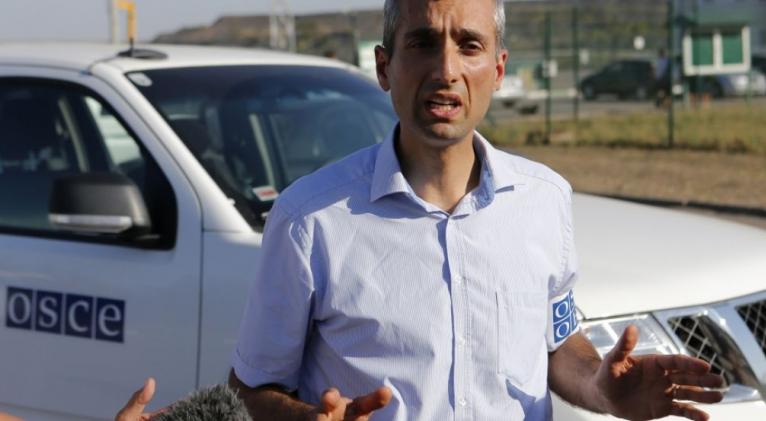Moscow, Paris, Berlin want more OSCE observers in E.Ukraine - Russia's rep
especiales

"Ukraine's authorities often cannot deliver on what was agreed in Minsk," Karasin said after the meeting. "We are worried that the launch of the political process is being delayed, while the social and economic conditions deteriorate."
"We'd like much quicker progress," he added.
Karasin was speaking after the meeting of the representatives of the ‘Normandy Four’ group – Ukraine, Russia, France and Germany, which took place in Berlin on Friday. Conducted at the level of top diplomats, the forum is referred to as the contact group.
The foreign ministers of the ‘Normandy Four’ states recommended the mandate of the OSCE (Organization for Security and Cooperation in Europe) Monitoring Mission to Ukraine be prolonged and the number of observers be extended, he said.
"We have agreed to recommend to extend the mandate of the OSCE mission, expand the number of its members and provide it with the necessary hardware and equipment,” Karasin told reporters.
Later quotes from agencies said the agreement was made on consensus, with the Ukrainian party promoting the idea of deploying peacekeeping forces to the conflict zone. But according to Karasin, France and Germany shared Russia’s lack of enthusiasm at the proposal.
“A peacekeeping operation is a rather complicated international affair, which is directly related to the ruling by the UN Security Council. All the participants of today's meeting – except the Ukrainian representative – agreed that we now need to concentrate on strengthening role of the OSCE mission and contact group,” he said.
In a separate telephone call, Russia's Foreign Minister Sergey Lavrov and his German counterpart Walter Steinmeier also called to prolong the OSCE mission and boost the number of observers to 1,000.
The Ukrainian conflict began in April 2014, after Kiev sent its military to the south eastern regions which refused to recognize the new coup-imposed authorities in the capital.
The fighting has seen over 6,000 killed and nearly 15,000 injured, the UN Human Rights Office said on Monday.
With the assistance of ‘Normandy Four,’ the sides reached a peace deal in Belarusian capital Minsk on February 12.
The OSCE is speaking of general progress made by both Kiev and anti-government forces in fulfilling the agreement, with violations of the ceasefire on the decline, and withdrawal of heavy weapons also underway.














Add new comment